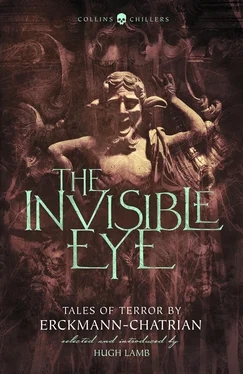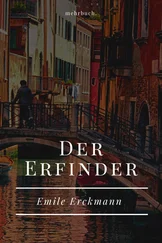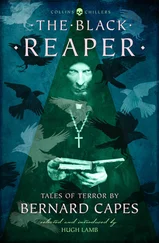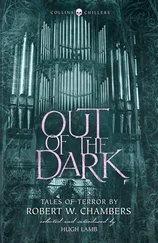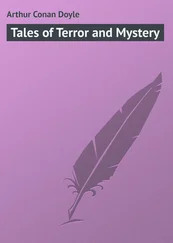These ideas came and went in my head like figures from a magic lantern, and I found they had a reasonable, serious look, and I was much taken with them.
It was in mid-July. In the heavens the lark poured out his unending music; the crops undulated in the plain; the warm puffs of light wind carried to me the love-cries of the quail and the partridge in the corn; the foliage twinkled in the sunlight; the Lauter murmured in the shadow of the large old willows. But I saw or heard nothing of all that. I wished to be the mayor, I stuck out my abdomen; I puffed out my cheeks, and I repeated to myself, ‘Here comes Herr Kasper Haas … the rich man … the warmest gentleman in the country! Ho! Ho! Ho!’
And my little mare galloped on. I was anxious to try on the three-cornered hat and the great red waistcoat of my Uncle Christian, for I thought that if they suited me it would save me buying others. About four in the afternoon the little village of Lauterbach appeared, nestling in the valley; and it was with some emotion that I looked at the large fine mansion which was to be my residence, the centre of my estate and my power. I admired its picturesque situation on the dusty highway, the immense roof of grey tile, the sheds with their vast wings brooding over carts and wagons and crops, with a farmyard behind, then the kitchen garden, the orchard, the vineyards on the hill slope, the meadows in the distance. I thrilled with pleasure at the spectacle.
And as I went down the main road of the village, old women, with nose and chin meeting like nut-crackers, bare-headed, rumpled children, men in big otter-skin hats, a pipe with a silver chain in their mouths – all these good folks looked at me and greeted me: ‘Good day, Herr Kasper! Good day, Herr Haas!’
And all the little windows fill with astonished faces. I already feel at home. It seems to me I have always been a great landowner of Lauterbach. My life as a musical conductor is no more than a dream – my enthusiasm for music a folly of youth. How money does alter a man’s way of looking at things!
However, I stopped before the house of Notary Becker. He has the deeds of my property, and must give them to me. Tying my horse to the ring by the door, I jumped on the step, and the old lawyer, his bald head uncovered, his thin spine clad in a long green dressing-gown with a flower pattern, came out to welcome me.
‘Herr Kasper Haas! I have much honour in greeting you!’
‘Your servant, Master Becker!’
‘Will you deign to enter, Herr Haas?’
‘After you, Master Becker, after you.’
We crossed the hall, and I saw at the end a little bright airy room, a well-set out table, and, near the table, a pretty girl, graceful and sweet, her cheeks touched with a modest blush.
‘Herr Kasper Haas!’ said the venerable notary.
I bowed.
‘My daughter Lothe!’ added the worthy man.
While I was feeling my old artistic inclinations revive within me, and admiring the little nose, the scarlet lips, and large blue eyes of Fräulein Lothe, her slender waist, and her little dimpled plump hands, Master Becker invited me to take my place at the table, saying that, as he knew I was about to arrive, he had had a little meal prepared for me.
So we sat down and talked about the beauties of nature. I thought of the old father, and began to calculate what a notary would earn in Lauterbach.
‘Fräulein, may I have the pleasure of helping you to the wing of a chicken?’
‘Sir, you are very good. With pleasure.’
Lothe lowered her eyes. I filled her glass, and she moistened her red lips with the wine. Father was joyful, and talked about hunting and fishing.
‘You will no doubt take up the pleasures of a country life. Our rabbit warrens are splendid, and the streams are full of trout. There is some fine hunting in the forest, and in the evening there is good company at the tavern. The inspector of woods and waters is a charming young man, and the magistrate is an excellent hand at whist.’
I listened, and thought this calm and peaceful sort of life was delicious. Fräulein Lothe seemed to me charming. She talked little, but her smile was so sweet and frank that she must be very loving, I fancied.
At last the coffee and the liqueur arrived. The young lady retired, and the old lawyer got on to serious business affairs. He spoke to me of my uncle’s estate, and I listened very attentively. No will, no legacies, and no mortgage! Everything clear, straightforward, regular! ‘Happy Kasper!’ I said to myself. ‘Happy Kasper.’
Then we entered the study to deal with the title-deeds. The closeness of the air, the piles of documents, the rows of law books, quickly chased away the day-dreams of my amorous fantasies. I sat down in a big armchair, and Master Becker thoughtfully fixed his horn spectacles on his long curved nose.
‘Here are the title-deeds to your Eichmatt meadowlands, a hundred acres of the best soil in the parish, and splendidly watered. Three crops of hay in a year. It will bring you in four thousand francs. Here are the deeds for your Grünerwald farms, and those for your Lauterbach mansion. It is by far the largest in the village, dating from the sixteenth century.’
‘The devil! Master Becker, that is nothing in its favour.’
‘On the contrary. It is in a perfect state of repair. It was built by Hans Burckart, the Count of Barth, as his hunting-house. It is true, a good many generations have passed since then, but the upkeep and repair have never been neglected.’
With more explanations, Master Becker handed me the title-deeds of my other properties; and having put the parchments in a bag lent to me by the worthy man, I took leave of him, more convinced than ever of my new importance. Arriving at my mansion, I inserted the key in the lock, and kicking the step, I cried, ‘This is mine!’ I entered the hall, ‘This is mine!’ I opened the wardrobes, and seeing the linen piled to the top, ‘This is mine!’ I mounted to the first floor, repeating always like a madman, ‘This is mine! This is mine! Yes, I am the owner!’
All my cares of the future, all my fears for the morrow are dissipated. I figure in the world, no longer by the feeble merit men allow me, by the caprice of the fashion of the day, but by the possession of things that everybody covets. Oh, poets!… Oh, artists!… what are you beside this stout owner of land, who nourishes you by the crumbs from his table? You are only the ornament of his banquet … the distraction of his moods of boredom … the songbird on his hedgerow … the statue decorating his garden … You exist only by him and through him … Why should you envy him the fumes of pride and vanity … he who owns the only realities in this world!
If in this moment the poor Musical Conductor Haas had appeared before me, I should have looked at him over the shoulder, and asked myself, ‘Who is this fool? What has he in common with me?’
I opened the window. Night was falling. The setting sun gilded my orchards, my vineyards that lost themselves in the distance. On the summit of the hill a few white stones indicated the cemetery. I turned round. A vast Gothic hall, the ceiling adorned with heavy mouldings, took my eye. I was in the hunting-lodge of Hans Burckart, the Count of Barth. An antique spinet was placed between two of the windows. I passed my fingers over the keys absent-mindedly. The slack wires knocked together with the strange, twangling, ironic voice of teethless old women humming over the melodies of their youth.
At the end of the hall was the half-vaulted alcove, with great red curtains and a four-poster bed. The sight reminded me that I had been six hours in the saddle. And, undressing with a smile of unspeakable satisfaction, ‘This is the first time,’ I said, ‘I have slept in my own bed.’ And lying down, my eyes bent on the immense plain, already bathed in shadows, I felt my eyelids grow heavy in pleasant fashion. Not a leaf murmured; the noises of the village died one by one away … the sun had sunk … some golden gleams marked his trail in infinite space … I soon fell asleep.
Читать дальше
